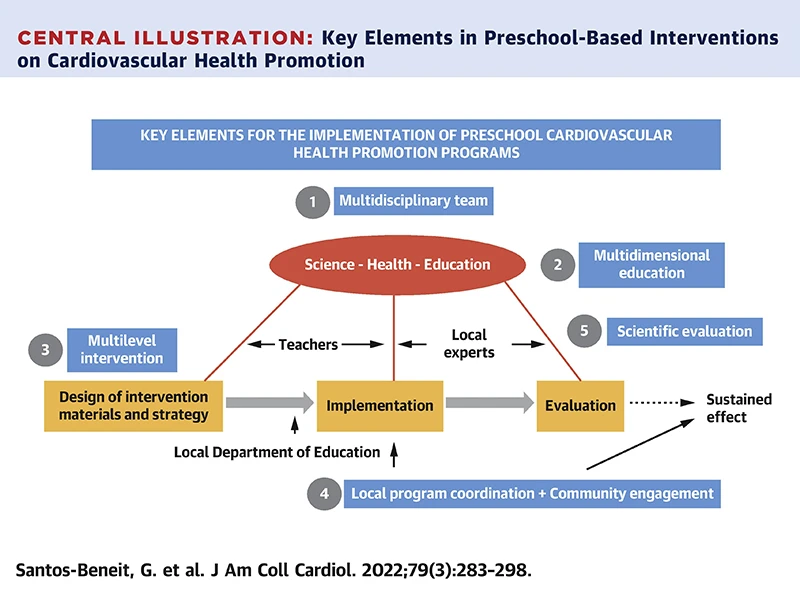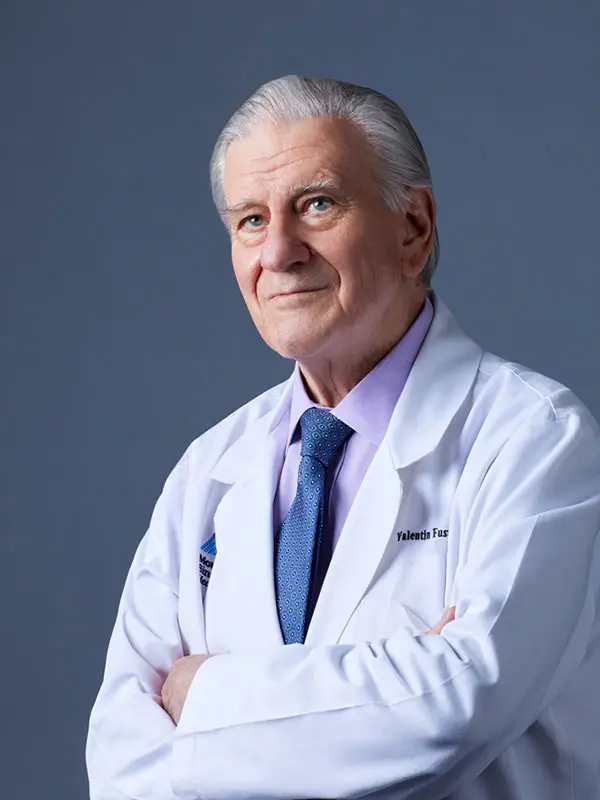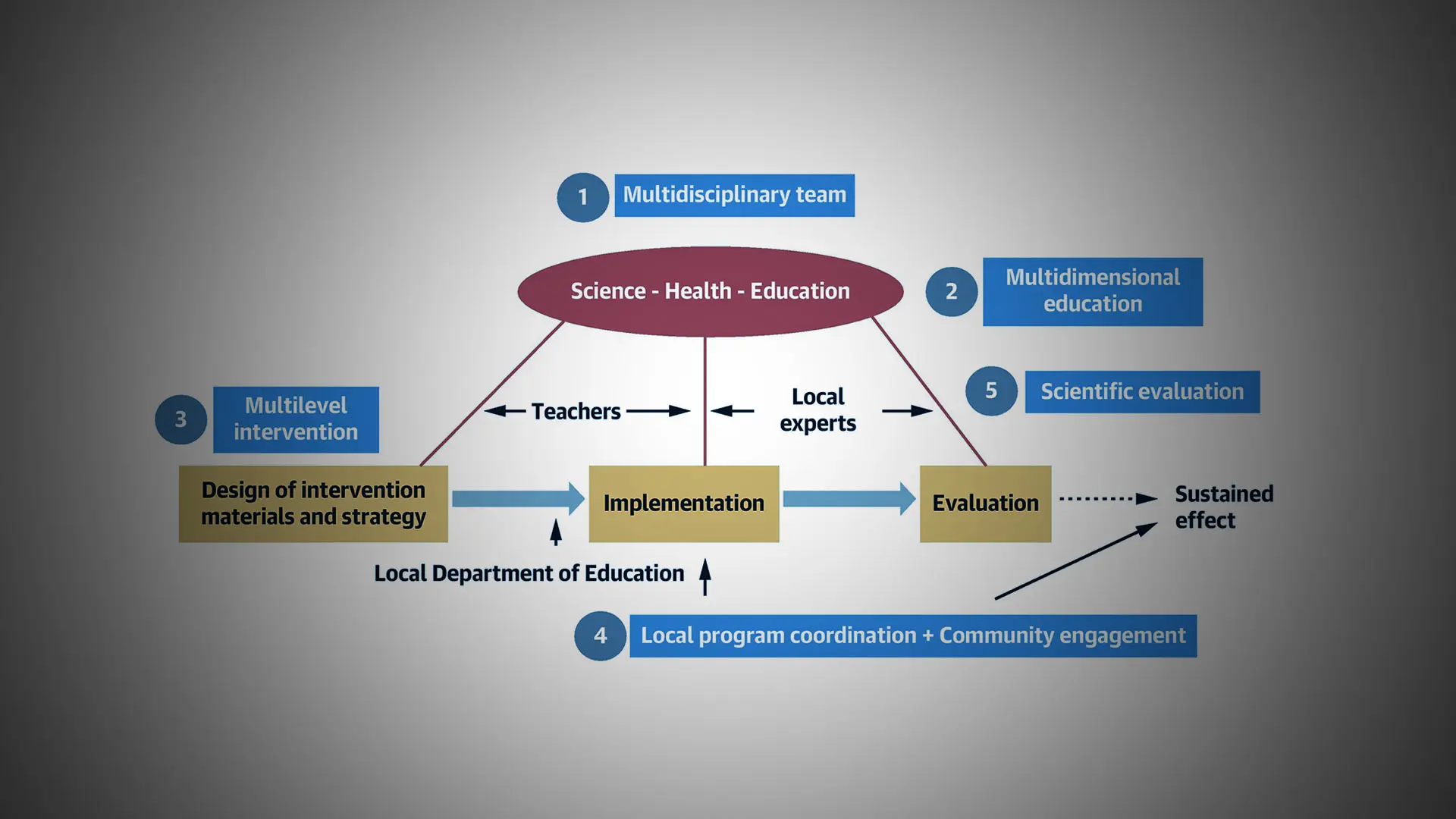A pioneering program to promote lifelong cardiovascular health in children starting in kindergarten is being expanded by Mount Sinai Heart to schools across the five boroughs of New York City following a successful pilot in spring 2021. The program, the Children’s Health and Socioeconomic Implications Project (CHSEI), works closely with children and teachers to instill heart-healthy behaviors. These include sound eating habits, regular physical activity, understanding the link between body and heart, and managing emotions.
“Our work over the past decade in this field has shown that programs as early as preschool can achieve meaningful and lasting improvements in the health habits of children,” says Valentin Fuster, MD, PhD, Director of Mount Sinai Heart and Physician-in-Chief of The Mount Sinai Hospital. “Expansion of this program will not only bring more children and their families under the educational umbrella, but will give us the chance to study the effects of socioeconomic factors and teacher characteristics on outcomes.”
The expanded phase of the program will begin recruiting in fall 2022 nearly 2,000 students from up to 51 schools from diverse socioeconomic environments, reaching out to an additional 2,000 students between the ages of 5 and 7 by the time it concludes. All participating schools will implement at least one four-month Heart Health classroom, and train teachers in the program. In addition, parents will be involved in activities designed to change unhealthful habits in both their children and themselves, and will have the opportunity to learn about heart healthy practices from Mount Sinai medical professionals. The new program will include a reintervention at second grade, analysis of the participants’ socioeconomic background, and evaluation of teacher motivation and stress.
“Our work over the past decade in this field has shown that programs as early as preschool can achieve meaningful and lasting improvements in the health habits of children.”
Valentin Fuster, MD, PhD

Central figure of a report on lessons learned from the Si! Program conducted by Dr. Fuster’s team in preschool settings in Bogota, Colombia; Madrid, Spain; and Harlem in New York City.
In 2014, Dr. Fuster and Mount Sinai Heart received a $3.8 million grant from the American Heart Association to promote cardiovascular health among children ages 3 to 5 and their caregivers in high-risk communities of New York City. This effort led to the creation and launch the following year of the FAMILIA Project, involving 600 young children at Head Start Centers in Harlem, and their caregivers, seeking to create a family and community “culture of heath.” That program was built on the success of similar programs in Bogota, Colombia, and throughout Spain, founded by Dr. Fuster and was designed to reduce the epidemic of childhood obesity and help to better understand how a child’s behavior, environment, and genetics can lead to heart disease.
CHSEI continues to build on that extensive experience, which has helped establish Mount Sinai as a highly supportive health-based community partner. Affirming the work is a study published in January 2022 in the Journal of the American College of Cardiology, which reported on lessons learned from the Si! Program (Salud Integral-Comprehensive Health) conducted by Dr. Fuster’s team in preschool settings in Bogota, Colombia; Madrid, Spain; and Harlem in New York City. That study, covering 3,800 children from 50 schools, found a significant increase in composite scores reflecting positive changes in knowledge, attitudes, and habits after participating in the four-month Heart Health program, compared to children in the control group.
“Healthy lifestyle education needs to be a global priority and needs to start as early as possible in the child’s life,” emphasizes lead author Maria Gloria Santos-Beneit, PhD, research coordinator for CHSEI. “Our study shows that elementary schools are well equipped to carry out that intervention in a way that impacts the child’s physical activities, eating behaviors, and body mass index.”
The COVID-19 pandemic has shed new light on the importance of health education in the classroom. “We now know that people with cardiovascular disease, diabetes, and hypertension suffered COVID-19 complications at much higher rates than the rest of the population,” Dr. Fuster says. “That’s made it more important than ever that we connect with children and their families to begin reducing those health risks. Our program has shown the potential to meet that goal, and we believe it could well serve as a model for others across the country.”
Featured

Valentin Fuster, MD, PhD
President of Mount Sinai Fuster Heart Hospital, and Physician-in-Chief of The Mount Sinai Hospital
